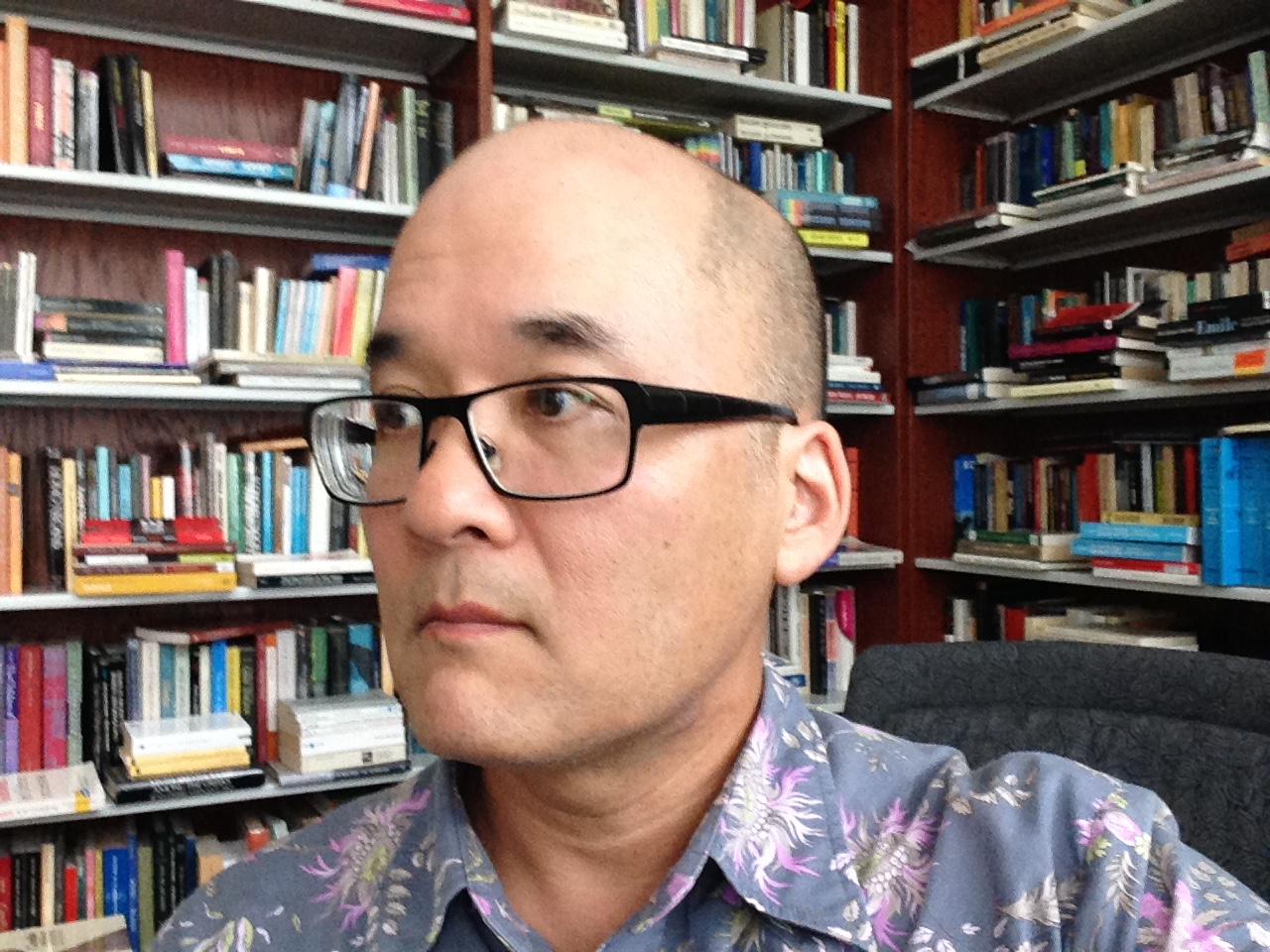Can you believe it? Homecoming is upon us, Thanksgiving break is just around the corner, and it’s time to register for Spring classes. Time flies when you’re having fun (a.k.a. when you’re studying religion at UF).
As you register for Spring coursework in the coming weeks we wanted to make sure you had all the relevant information on courses offered through #UFreligion (you can find the full course listings HERE [PDF] and HERE [Excel]).
We may be biased, but we have a great line-up of classes ranging from Religion in Latin America to Islam, Media, and Pop Culture. Here are a few courses we want to highlight and bring to your attention. If you have any questions please feel free to CONTACT US.
Religious Conversion – REL 4936, Dr. Robert Kawashima (co-taught with Nina Caputo, History) T 8-9/Th. 9
 For untold centuries, religion was not a matter of personal choice. One simply inherited the gods, beliefs, and rituals of one’s ancestors, absorbing them along with one’s mother tongue. It was arguably in ancient Israel that the concept of a religious conversion first became thinkable, thanks to that event which is generally if imprecisely known as the monotheistic revolution. For as soon as there is one true God, true forms of worship, etc. – and thus also false ones – a radical shift takes place, what Foucault would refer to as a discursive break. It is against this backdrop that one can clearly discern the significance of conversion. It will be the central goal of this interdisciplinary seminar to examine the conceptualization, representation, and reception of converts and conversion in Judaism and Christianity, from the biblical period through modernity, using methodologies employed in the study of history, religion, psychology, anthropology, and literature. Students will thus acquire intellectual tools for interpreting and analyzing the discourse and experience of religious conversion, topics of continued relevance in the 21st century. In order to supplement students’ traditional classroom experience, we are organizing a workshop on conversion in late March that will bring an international group of scholars to UF, which students will be encouraged to attend.
For untold centuries, religion was not a matter of personal choice. One simply inherited the gods, beliefs, and rituals of one’s ancestors, absorbing them along with one’s mother tongue. It was arguably in ancient Israel that the concept of a religious conversion first became thinkable, thanks to that event which is generally if imprecisely known as the monotheistic revolution. For as soon as there is one true God, true forms of worship, etc. – and thus also false ones – a radical shift takes place, what Foucault would refer to as a discursive break. It is against this backdrop that one can clearly discern the significance of conversion. It will be the central goal of this interdisciplinary seminar to examine the conceptualization, representation, and reception of converts and conversion in Judaism and Christianity, from the biblical period through modernity, using methodologies employed in the study of history, religion, psychology, anthropology, and literature. Students will thus acquire intellectual tools for interpreting and analyzing the discourse and experience of religious conversion, topics of continued relevance in the 21st century. In order to supplement students’ traditional classroom experience, we are organizing a workshop on conversion in late March that will bring an international group of scholars to UF, which students will be encouraged to attend.
From Disney to Avatar: Nature & Spirituality in Popular Culture – REL 3938, Dr. Bron Taylor W 10-E1
Focusing on the period since Walt Disney began making animal-focused documentaries and animated films in the 1930s, up through the blockbuster motion picture Avatar (2009), this course examines religious, spiritual, and political dimensions of artistic productions, scientific representations in museums, and other cultural inventions (such as theme parks), in which nature takes center stage. We will explore the cultural tributaries, influences, and controversies such productions engender, for they constitute important ways that environmental ethics, and quests for environmentally sustainable livelihoods and lifeways, are expressed and promoted. The course will enhance students’ abilities to interpret these cultural productions and their evocative power and explore their own reactions to these social phenomena.
The Hebrew Bible as Literature – REL 3213, Dr. Robert Kawashima T 4/Th. 4-5

This course will introduce students to the literary study of the Hebrew Bible within its ancient Near Eastern context. Our primary focus will be on a wide and varied reading of biblical narrative — along with a bit of poetry — but students will also be introduced to the scholarly study of the Bible from a literary perspective. More generally, this course will introduce students to the scholarly, interdisciplinary study of literature. That is, if the solutions and interpretations proposed will be specific to the Bible, the problems and ideas raised will have relevance for the study of literature as such.
Environmental Ethics – REL 6183, Dr. Anna Peterson T 4/Th. 4-5
 This course explores religious, ethical and philosophical ways of thinking about the value of nonhuman nature and human relations and obligations to it. It is required for graduate students in Religion and Nature and open to graduate students from other subfields in religion and from other departments who are interested in interdisciplinary approaches to environmental studies. Readings address land ethics, ecological restoration, ecofeminism, animal studies, Christian eco-theology, Buddhist environmentalism, deep ecology, and more.
This course explores religious, ethical and philosophical ways of thinking about the value of nonhuman nature and human relations and obligations to it. It is required for graduate students in Religion and Nature and open to graduate students from other subfields in religion and from other departments who are interested in interdisciplinary approaches to environmental studies. Readings address land ethics, ecological restoration, ecofeminism, animal studies, Christian eco-theology, Buddhist environmentalism, deep ecology, and more.Religion and the News – REL 3938/JOU 4930, Prof. Ken Chitwood T 7/Th. 7-8
This course will cover the importance of religion reporting in age of religious illiteracy & discuss news as a primary portal for knowledge about religion. It aims to give students an opportunity to give voice to why they report on religion, from a personal perspective and familiarize students with the multiple representations and expressions of religion, discussing how we can define religion in a pluralistic age. Students will also get the chance to know what resources, methods, and theories are available for religion newswriting and be given the opportunity to write and publish blogs, articles, and analysis pieces for public consumption. Basically, this is not a passive class with a theoretical end, but an active class with practical and real-time applications and assignments. Read more HERE.
Global Ethics – REL 3938, Dr. Anna Peterson T 5-6/Th. 6
This new class explores the ethical dimensions of global social, political, and environmental issues. It will pay particular attention to the roles of religion and cultural traditions in the ways people address concrete problems, including: * Human rights * War and peace * Climate change * Public health. This class has no prerequisites. It is geared toward students from a variety of backgrounds with an interest in global problems and solutions. For more information, please email annap@ufl.edu.
Religion & the American Immigrant Experience – REL 3120/LAS 3930, Prof. Sarah Moczygemba, MWF 3
Religion and the American Immigrant Experience is a course designed to introduce students to the role movement plays in the practice of religion. Focusing specifically on the Americas, this course will cover concepts including transnationalism, diaspora, borderlands, hybridity, nativism, and colonialism through looking at case studies that represent a variety of religious traditions from the 15th century to the present. We will explore a variety of questions such as: How do people use religion orient themselves during and after migrations? In what ways do religions change as a result of migration? To what extent are religious ties maintained between sending and receiving countries? Students will also discuss these scholarly concepts as they related to diverse forms of media including literature and film. After completing this course, students will understand to make sense of religion and migration.
Women and Religion – REL 3938, Dr. Whitney Sanford M 8-9/W 9
Women and Religion explores the lives of women in multiple religious traditions, including Judaism, Hinduism, Christianity, Islam, and Buddhism. Using memoirs, science fiction, and ethnographic accounts, among other things, we will consider how women understand their role in their own traditions and how women work within their traditions in response to contemporary social contexts. The class begins with readings that situate Women and Religion within larger academic and social conversations so that we have the tools to discuss issues, including gender, authority, reflexivity, and sustainability. Our readings include: Brown, Sid. 2001. The journey of one Buddhist nun: even against the wind; Butler, Octavia E. 1993. Parable of the sower; Mahmood, Saba. 2005. Politics of piety: the Islamic revival and the feminist subject; and Ehrlich, Elizabeth. 1997. Miriam’s kitchen: a memoir. For more information e-mail wsanford@ufl.edu.